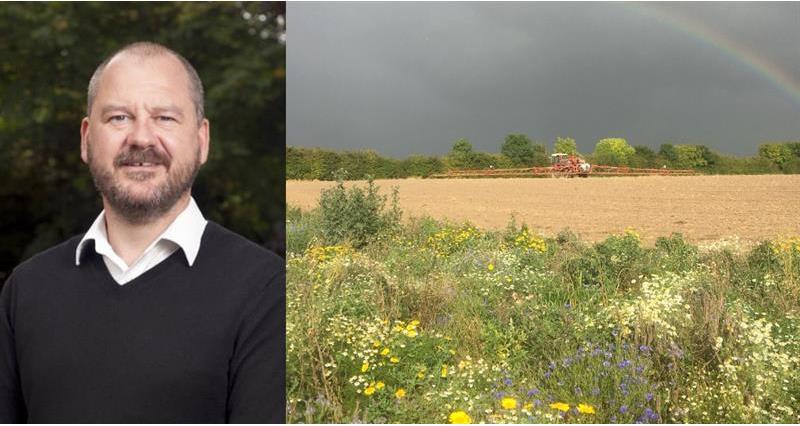NFU’s senior regulatory affairs adviser, Dr Chris Hartfield, explains how the study, having scaled the size of the problem, is light on solutions but heavy on rhetoric to reduce pesticide use.
UK researchers, led by a team at the international conservation charity - Zoological Society of London, have for the first time put an economic cost on the herbicide resistance of the black-grass weed affecting winter-wheat crops across the UK.
The study, published in Nature Sustainability, estimates that the cost of black-grass resistance in the UK is £400 million and 800,000 tonnes of lost wheat yield each year. In the worst-case scenario – where all fields contained large amounts of resistant black-grass – it is estimated that the annual cost would rise to £1 billion and a wheat yield loss of 3.4 million tonnes. Given the scale of these losses, the study flags the implications for national food security and suggests there should be national scale policy measures to reduce the impact and spread of weed resistance. The paper also makes it clear that future food security will rely on sustainable intensification. I would agree that, given the scale of the problem of resistance, there should be a strategic national approach to tackle it.
The study then calls for national policies to link with international ones and suggests that resistance management could be incorporated into existing legislation like the EU Directive on the Sustainable Use of Pesticides. But it fails to realise that this Directive already includes specific measures, within its core principles of IPM, to take action on resistance. The focus of the EU Directive is also very clear - that it aims to rightly reduce the risk and impacts of pesticide use (its focus is not on reducing pesticide use per se).
The study starts as a good scientific assessment of the economic impacts of herbicide resistance, but then having assessed the size of the problem as significant there is little focus on resistance management strategies or finding alternative effective ways to control resistant weed populations, and there is no assessment of whether or not effective and economically viable alternatives to current herbicides or solutions to resistance issues are actually available. Maybe this is the next step in the research programme. But if it is, why then does the study lurch from an assessment of the scale of the problem to then repeatedly campaigning for reductions in pesticide use as though this provides a solution?
Of course resistance to pesticides is driven by pesticide use, but the sustainable solution is not as simple as the ‘statutory limits on pesticide use’ the study calls for. The issue is complex. However, having sized the problem up, this study skips the investigation of solutions and jumps straight to calling on Government for policy changes. Unfortunately this makes the issue appear simplistic and very black and white, suggesting that having identified a big problem caused by pesticide use - the answer to the problem is reduced pesticide use. While this binary approach to the problem will appeal to mainstream journalists wanting another easy story knocking pesticides, it won’t help control black-grass. It won’t improve wheat yields. It won’t help ensure our mince pies are made with British flour and our Christmas turkey’s diet includes British wheat.
One thing is very clear – taking a blinkered approach on reducing pesticide use, without ensuring more sustainable, effective, safer and lower risk alternatives are available first, will result in far greater costs than current herbicide resistance and runs the real risk of making it economically unsustainable to produce our food here in the UK.
Learn more about the NFU's work around glyphosate resistance here
